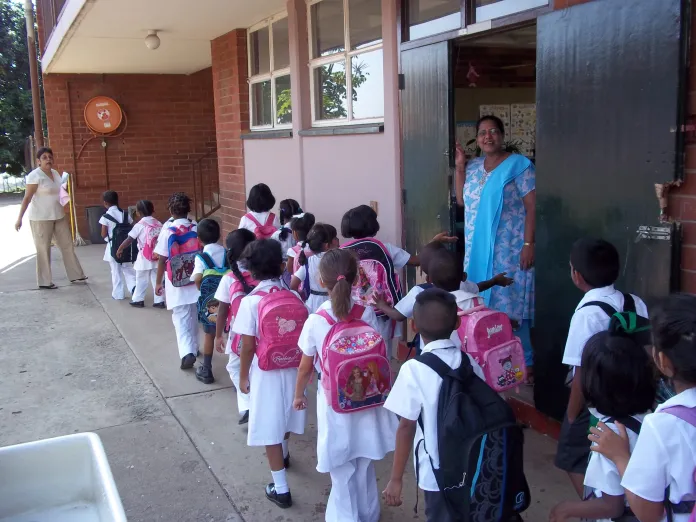A proposed change to the South African education system could soon mean that students receive classes in their native language rather than English. How is this likely to affect students now and in the future?
A Greater Demand for Foreign Language Classes?
At the moment, most South Africans can speak more than one language, with many people speaking English, Afrikaans, and their mother tongue. However, the switch to this new way of teaching will mean that students have less exposure to English during their school years, which could adversely affect their possibility of traveling abroad or gaining employment with an international company.
This is likely to result in the demand for English classes rising as more South Africans realize that they can improve their skills in this and other languages in alternative ways. For example, students can get a discount when they book a package of 1-to-1 online language classes. As well as English, you can also learn the likes of French, Spanish, and German in this way with the help of a personal tutor. All worldwide students who have a valid university email address can get this discount.
The Full Story of Why This Change Is Being Planned
This year, Basic Education Minister Angie Motshekga revealed this planned change at the start of March. She said that students are performing poorly because they are forced to learn all subjects in English, even when it is a foreign language for them. This comes hot on the heels of worrying results, such as the drop in the percentage of students passing their tests in areas such as the Western Cape Education Department.
Since 2009, most of the schools in the country have taught all subjects from grade four onwards in English. The first year of schooling is still provided in native languages, with English as a subject in the first three years. After that, all of the topics are moved onto an English basis. However, this doesn’t apply in Afrikaans language institutions, where everything apart from other languages is studied in Afrikaans.
A pilot scheme has already been carried out in the Eastern Cape province. It appears to have gone well enough for the authorities to consider rolling out the mother tongue teaching system to the rest of the South African regions. Some of the latest types of education technology have been used in the pilot to deliver classes such as mathematics, natural science, and technology in mother tongues.
Will It Make Education Easier?
One of the critical reasons for switching from the current model is because of the theory that learning any subject is easier if you do it in your native language. The Education Department noted in its most recent annual report that English is the primary language of textbooks and classrooms, even though only about 4% of students speak it at home.
Minister Motshekga pointed out that this reliance on English means that children are “no longer being tested on their cognitive development or understanding.” Still, instead, they are being tested on their language skills. Therefore, the switch to native languages should mean a fairer system in which every student gets the chance to learn a language they feel entirely comfortable with.
More Pride in Native Languages
Another factor to consider is the hope that this move helps increase the pride felt by South Africans in their native languages. There are 11 main languages spoken across the country, with the most widely spoken being Zulu, which 23% of the population speak. 16% of South Africans speak Xhosa and Afrikaans are in third place with 14%, while fewer than 10% speak English as their first language.
In total, South Africans speak up to 30 languages across the country, so not everyone will be able to access classes in their mother tongue. However, those 11 significant languages are thought to be used daily by 98% of the country’s population. No date has yet been given for whenever this change could be implemented, but it could replace the so-called BELA Bill that has stalled recently.
This seems like a move that should provide several benefits for South African students and the country. It should be possible to place more importance on the native languages and help students learn, while anyone interested in learning other languages can do so easily online.












